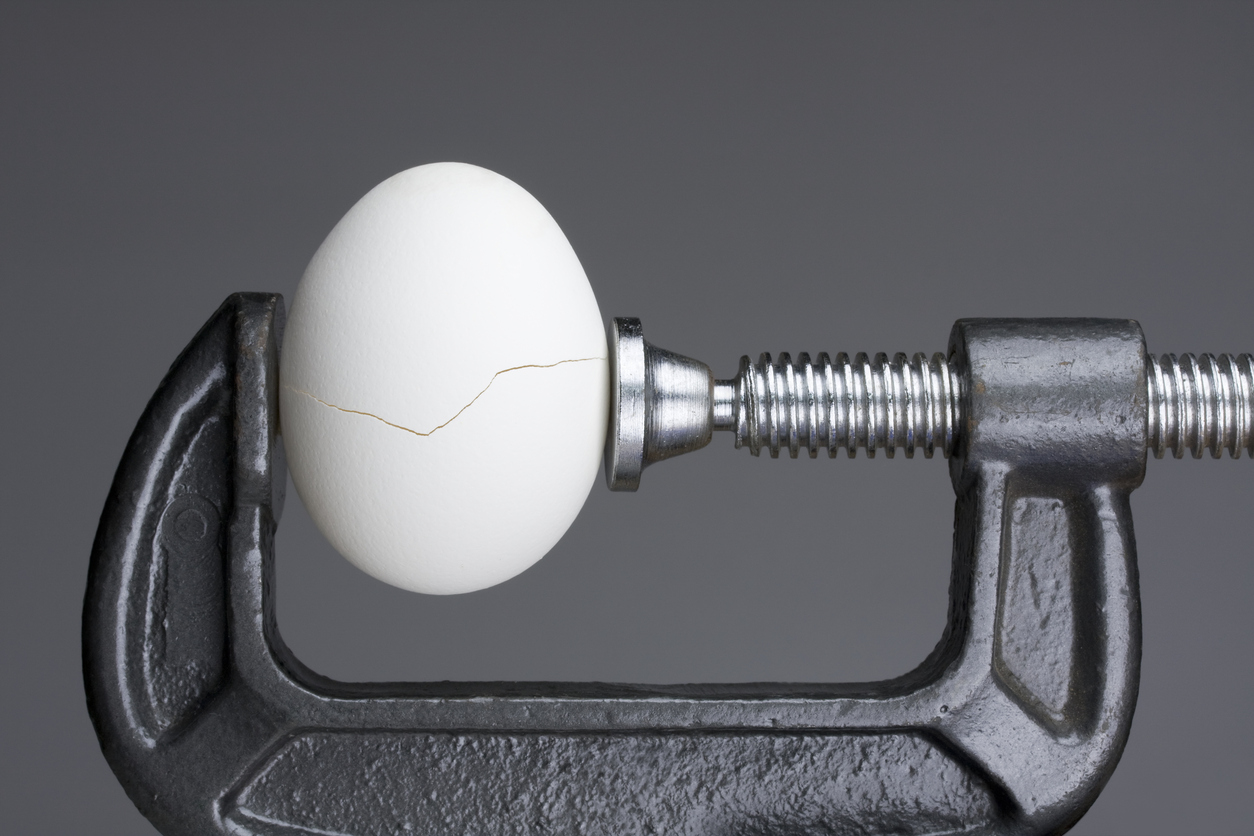The concept of everything in moderation doesn’t apply solely to chocolate cake. It’s also a useful mantra in a host of other situations, and is particularly effective, when thinking about stress.
Stress is such a powerful force. You can harness it for good, or it can harness you for bad. The trick, without doubt, is to realise when, and if, that transition is about to occur and stop it in its tracks. Good stress is linked to peak performance. Bad stress is responsible for making even the smallest of jobs impossible.
As a psychological state, it has gotten a bad rep of late. It’s associated with a host of negative symptoms from sleep deprivation, to anxiety, to illness, but not all stress manifests itself this way. It’s only too much stress that causes us problems: the sort we get with too much time in a bad job or in a long-term, seemingly hopeless situation.
According to government stats, 12.5million workdays were lost to stress in 2016/17 and every 2000 in 100,000 professionals suffer with work-related stress, anxiety or depression. Those figures, are of course, relating to bad stress.
In its most basic form, stress is just any deviation from homeostasis. Small amounts of positive stress are a great motivator: they give us focus, they win us races, secure us promotions, land us dates and close us deals. They provide us with the adrenalin to perform at peak level. Physically stressing our bodies, within the confines of a structured approach, is what makes us more muscular, stronger, fitter, faster and more powerful.
Athletes physically stress themselves every day. Others, including many entrepreneurs and successful business people, mentally stress themselves on the same basis.
We’ve all heard the phrase: ‘do something every day that scares you.’ And we understand it immediately as a motivational slogan linked to personal growth. Why? Because mental resilience is proven to develop through exposing ourselves to mildly challenging situations, regularly, over time.
We grow, often through small traces of exposure, to things that frighten us a little. This approach to life can make something we previously viewed as a negative stress, not stressful at all. Or even turn it into a positive stress and something we find exciting.
We think it’s worth bearing in mind here that the phrase isn’t: ‘do things that scare you continuously’ or ‘do something which paralyses you with fear every day.’ This is laughable because it’s such a terrible idea, and it isn’t stress in moderation at all.
So how do you make sure that you are operating from a position of positive stress?
Let’s start with acknowledging that we all experience some form of stress every day. Whether positive or negative. One of the most important factors which will decide whether this stress starts to impact you negatively is based on how much you must deal with.
Bouncing from one stressful experience to another will finally exhaust even the most resilient of us. Our suggestion, however, isn’t to try to build an immunity to stress. That’s too tricky when so many different stressors exist – we’d far rather concentrate on simply removing the stressors (that can be moved) in the first place. Choose your battles well and only put up with stress when there is a good amount of ROI to be gained.
To do this, you need to recognise how you react to situations throughout the day and be mindful of factors which make you feel anything other than calm.
Many of us are so tuned in with our physical selves, we know how much junk food we can have, how many drinks, the minimum amount of sleep we need, how long we can go without exercise, how far we can run before our knees may ache the next day, but how many of us know just how much stress we can take before we aren’t firing on all cylinders? How many of us can recognise the warning signs just before we are mentally on the edge? You need to make it your business to know.
If we see stress as a points system and simply accept that we each have a personal, maximum points threshold, at any time, then avoiding negative stress is simply about being aware of volume.
So, try this, think about everything which stresses you in any small way from the minute you get up to the minute you go to bed. Then workout what you can alleviate, at little cost but for maximum benefit. Trust us, they will add up to make a difference.
They may seem like such small, irrelevant little things initially, but maybe, for example, it isn’t the big work presentation that sends you over the edge. Maybe it’s your coffee machine always on the blink, or waiting for presales to deliver the information you need, or not having the correct marketing collateral you need to support your sales, or the colleague who wants to gossip or moan, or continuously berating yourself for not managing to make the gym.
Maybe you’re just assuming it’s the presentation that must go well to close that deal, but could it be that in isolation, that’s a level of stress you could easily deal with?
If this is the case, then buying a new espresso machine, pre-agreeing internal SLAs with other teams and getting marketing engaged at every part of the sales funnel or booking that personal trainer, could make you feel a tonne better and ensure your presentation – which offers the biggest ROI – is a synch.
If we are wrong (and we’re not), with just a little bit of admin, you’ve still got a tasty coffee every morning, a fitter body, quicker quote-to-cash timelines, and an easier life at work.


